Coronavirus is not an outlet for racism
Since the outbreak of COVID-19, many Asian Americans and businesses have experienced racism and discrimination. The Sidekick staff writer Camila Villarreal explains why COVID-19 is not an opportunity for hate.
April 24, 2020
When the world goes reeling into a global crisis, many people have different ways of responding. Some come to the aid of those in need, others find ways to protect their loved ones and a select group of people feel they have no other option but to let out their fear in the form of racism.
Ah, yes. America’s bane of existence strikes once again. I have written about racism in the past and it is a shame that I am back to do it once more.
From memes about running away when the Chinese kid sneezes to violent videos of Asian people being mistreated and harassed, it’s clear that an anti-Asian sentiment has settled in the hearts of those too corrupted in fear to believe that a worldwide pandemic is not the fault of a race. This is the same irrational thinking that was seen in the days of World War II, when anti-Japanese propaganda circulated the country and over 100,000 Japanese-Americans were forced into isolated camps for over four years.
“You never know how far a person can take a stereotype,” Coppell High School junior Kevin Ly said. “It can be very scary, but dealing with racist people is not my priority.”
It’s true. The United States has an unlucky streak of being racist for no good reason. Many people have begun calling COVID-19 derogatory names like “Kung Flu” and “Chinese virus.” One of these people is, I’m afraid, our very own President Donald Trump. Trump has stated that using such terms is acceptable because it is accurate to the place of origin.
According to the World Health Organization, there is a specific way to name diseases. Naming it after a race or group of people is inaccurate. Yes, the virus comes from China, but calling it a “Chinese virus” is implying that it is the Chinese people’s fault. By that same logic, smallpox should be called “European disease” and the Spanish flu should be called “American flu.”
If the leader of our country cannot find it in him to support his own Asian demographic rather than investing his efforts in associating COVID-19 with the Chinese race, we cannot expect the number of racist incidents to fade away anytime soon. It is a tragedy having to come to the realization that many minorities are on their own in this country.
“No matter where this virus is coming from, we should all be coming together to support each other,” CHS junior Helen Tan said. “Hearing from the news and social media makes me fearful of what’s to come because you never know how bad the consequences will be once the virus itself is gone.”
This “coronavirus anxiety” not only compromises the safety of Asians, but their businesses, too. Nearly half a million Chinese companies have shut down since the start of the outbreak because people question the cleanliness of the food and employees. In Dallas, Chinese restaurants are seeing similar economic impacts. This might not be outright racism, but we cannot let our fear of the coronavirus close small businesses simply because of who works in them.
Jay Chaney, a freshman at the University of Texas at Dallas and employee at the Zion Market in Music City Mall in Lewisville, a Korean grocery and food court, describes the drastic change in business since the outbreak of the virus.
“Since we just opened up, business was always pretty slow, but ever since [the coronavirus outbreak], it’s been even slower,” Chaney said. “[The racism] is unfortunate, but not surprising.”
Many Asian Americans have acknowledged that the responsibility of keeping these local Asian businesses going is on their shoulders. But it should be on everyone’s. The rapid shutdown of so many small businesses in the United States is having devastating effects on the nation’s economy. Simply because Chinese businesses attract Chinese people does not mean you are any more likely to contract the virus than you would be at your local Walmart. Do not let your anxiety for the situation cloud your ability to be reasonable.
“It doesn’t feel real to me that people could be this ignorant,” CHS junior Bella Null said. “It makes me sad that there’s this belief that all Asians have the virus and all of us are bad. During the first weeks of [the outbreak], my friends started telling me that their parents wouldn’t let them go to any Asian marketplaces or boba restaurants. I kind of understood why, but it still made me upset.”
Being racist does not make you immune. Wash your hands, wear masks and stay kind.
Follow Camila Villarreal (@fliipthewriter) and @CHSCampusNews on Twitter.




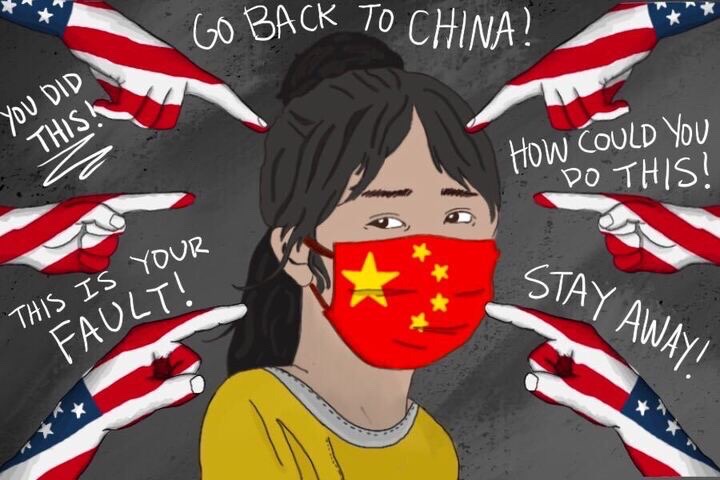

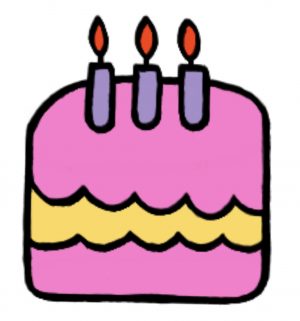
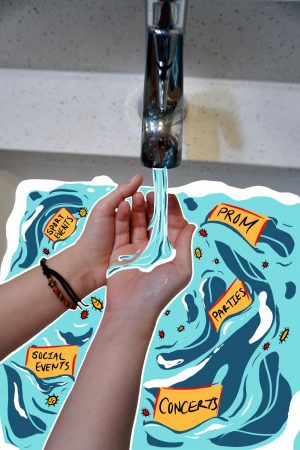
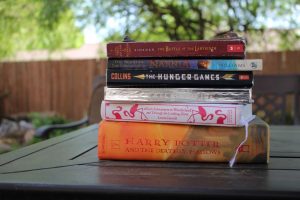
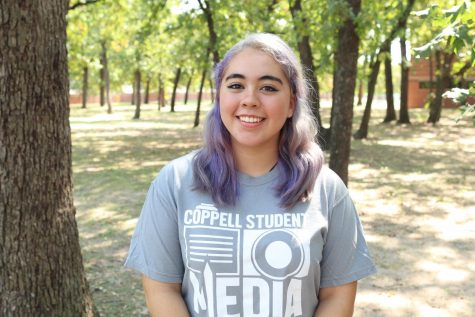







Sarah Mathew • May 13, 2020 at 6:38 pm
@Venky Just because you have not seen racism in Coppell does not mean it doesn’t happen. You cannot talk for all Asians and frankly, I’m appalled by your behavior. This is indeed not fake news, look at the facts before writing an absurd claim like that.
Venky Venkatraman • Apr 29, 2020 at 10:01 pm
I have not come across a single instance of racist behavior against Chinese or Asians in the Coppell area. Where exactly is your information coming from? As an aspiring journalist, you need have some facts before you write an article of this nature. Otherwise, what you write will be dismissed as fake news.
Samantha C Freeman • Apr 26, 2020 at 1:04 am
Just another AMAZING and POWERFUL story in the books for you Camila! Superb!
Shivi Sharma • Apr 24, 2020 at 4:15 pm
This is really well-written Camila! It unfortunately needed to be said. And the graphic looks amazing!!